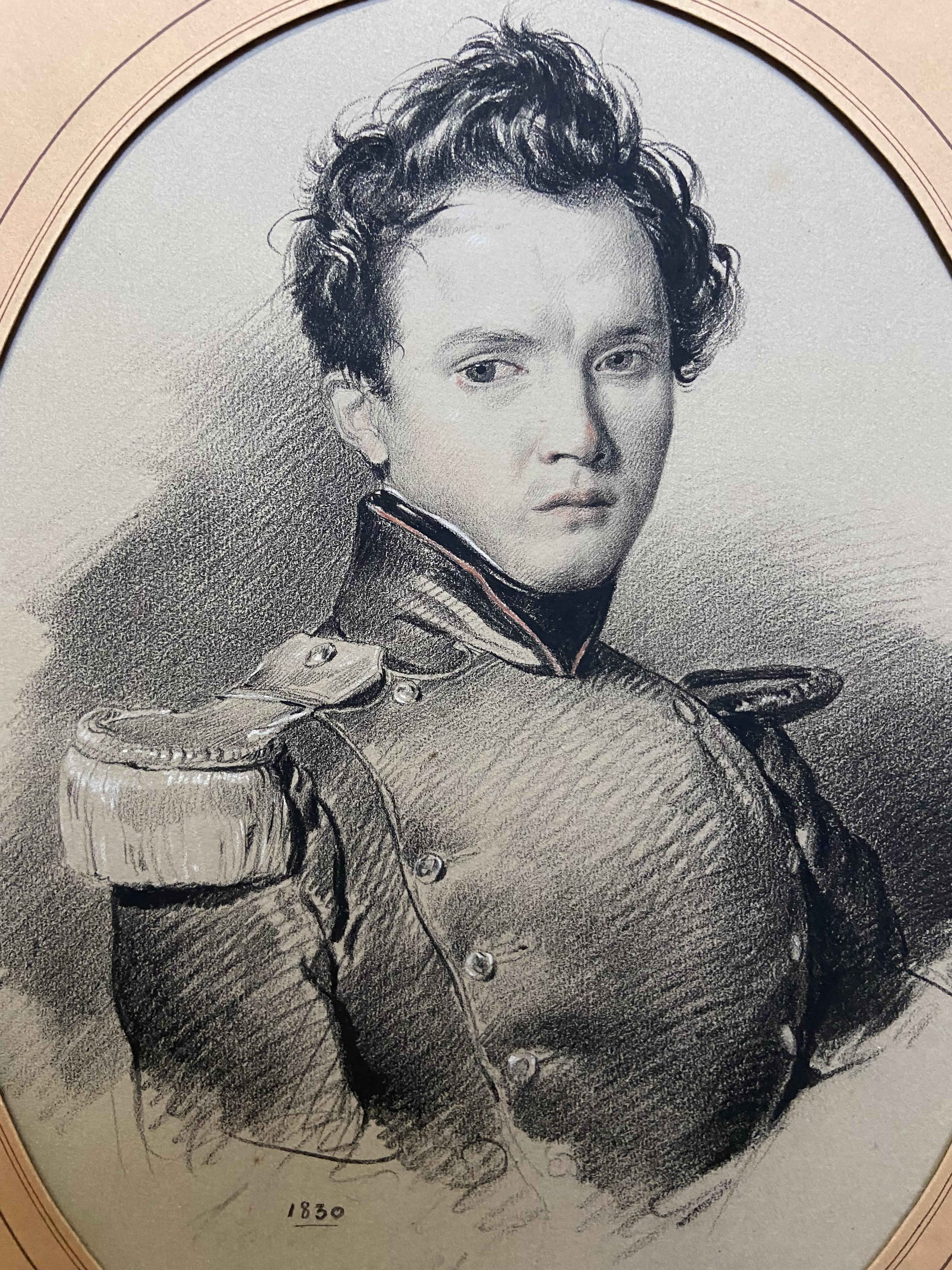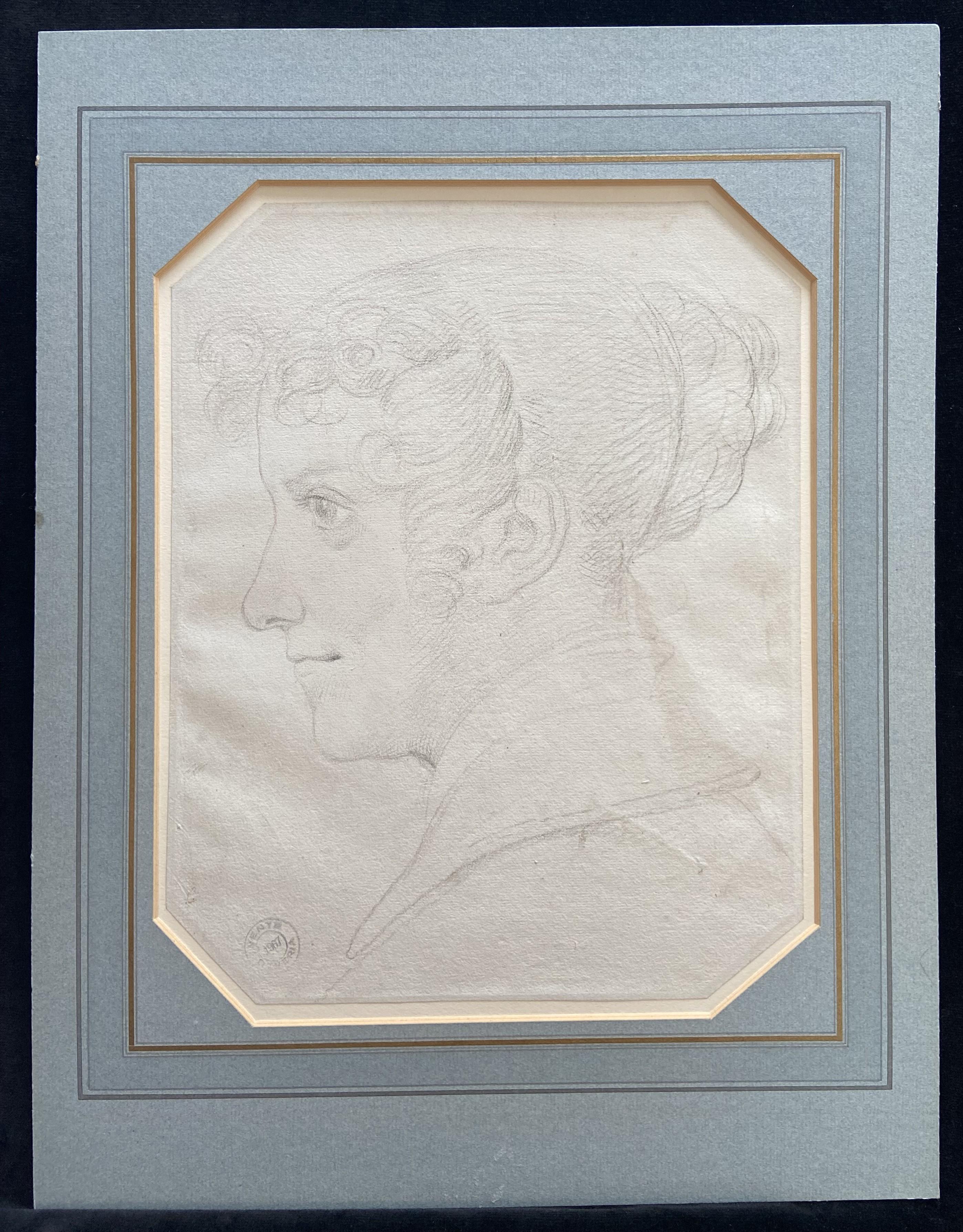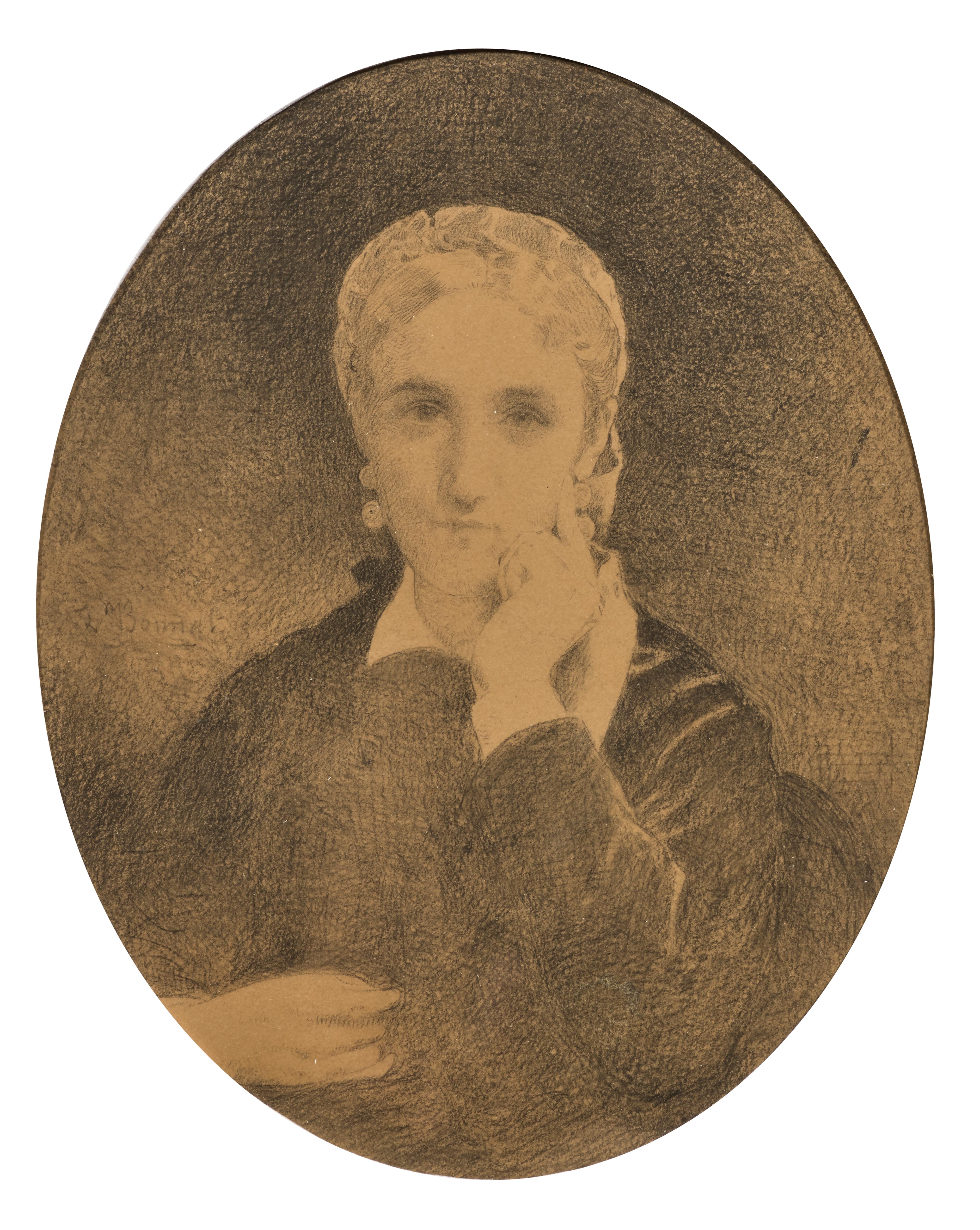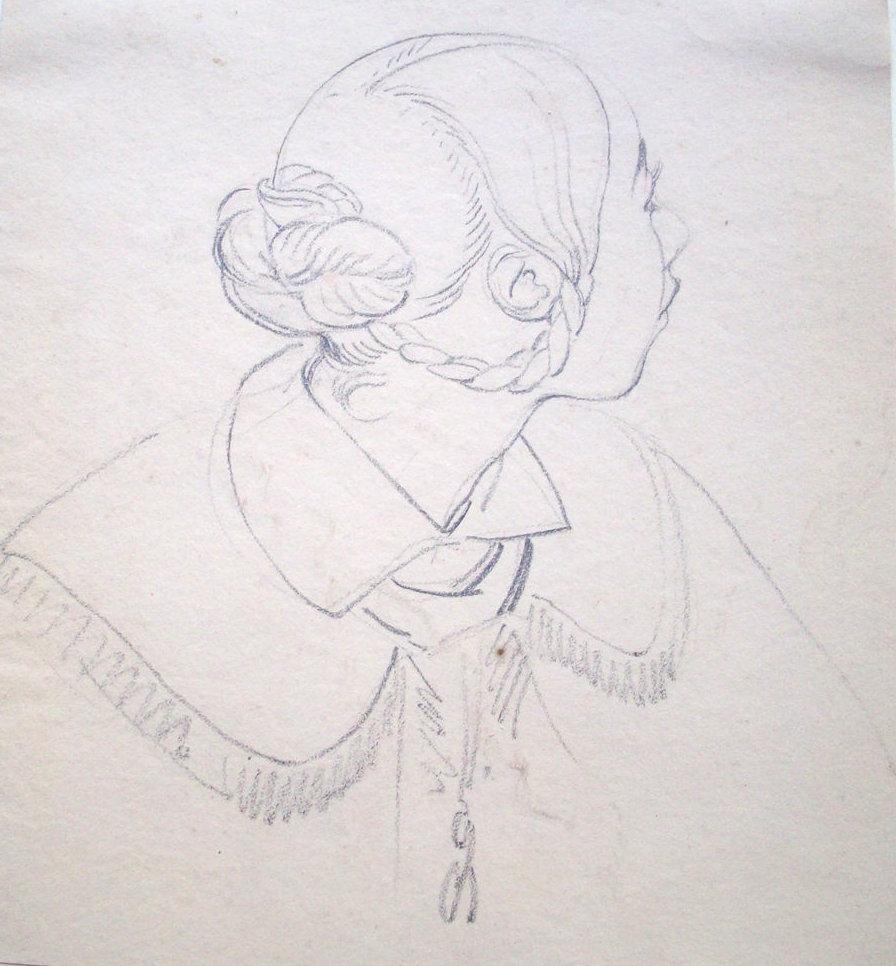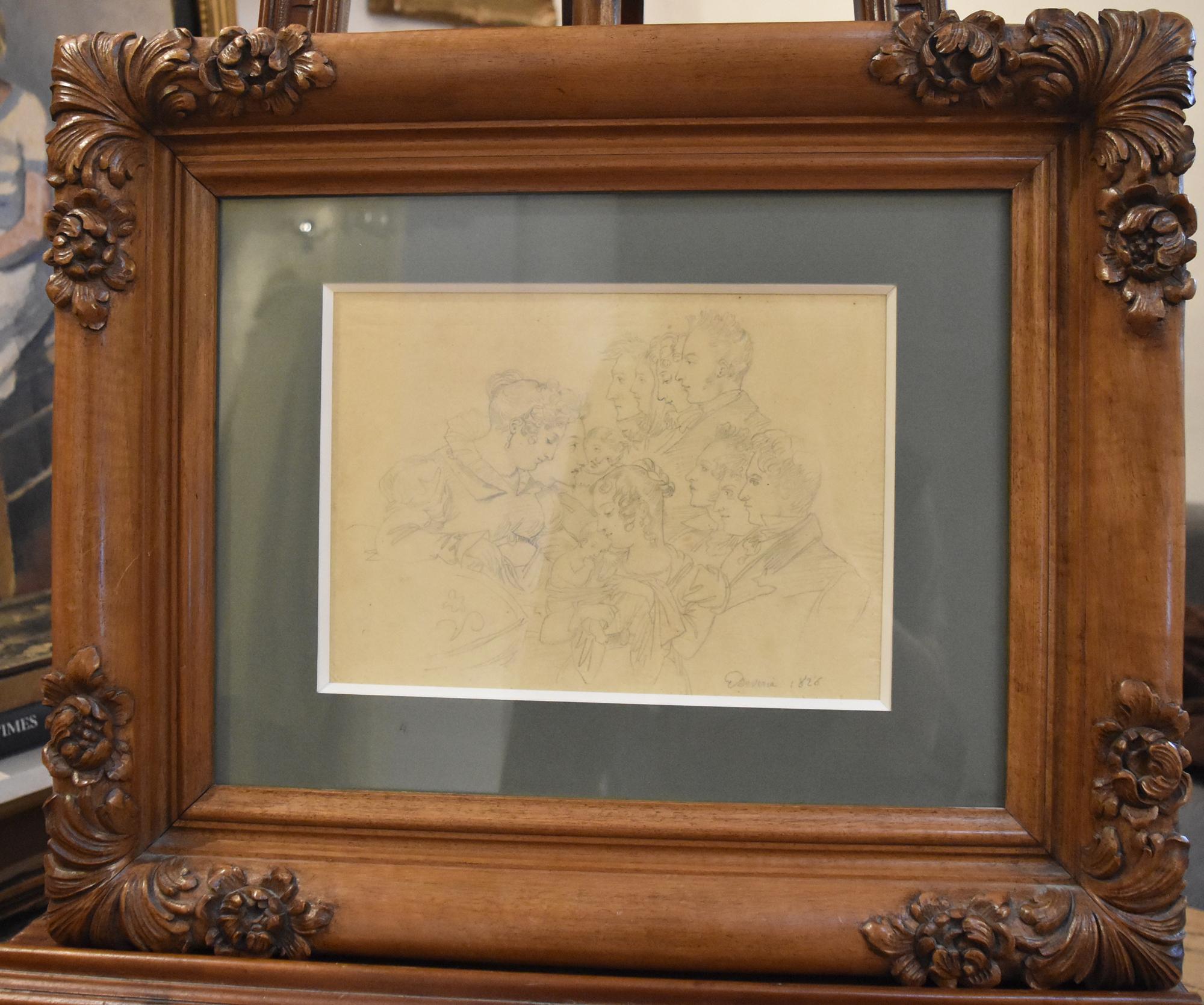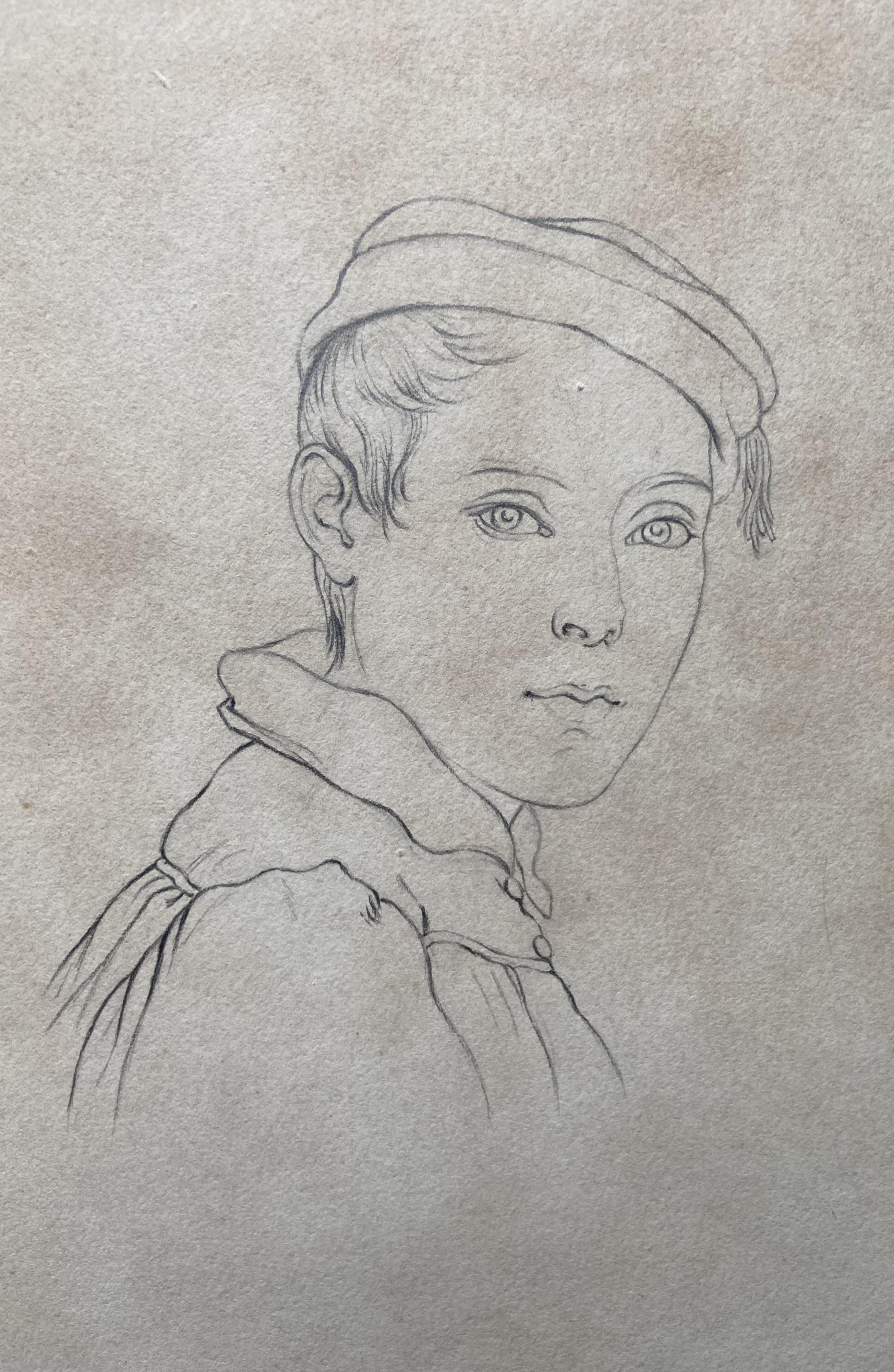Pierre Georges JeanniotPierre-Georges Jeanniot (1848–1934), Henri Rochefort for a duel, drawingcirca 1870
circa 1870
About the Item
- Creator:
- Creation Year:circa 1870
- Dimensions:Height: 11.03 in (28 cm)Width: 8.27 in (21 cm)
- Medium:
- Movement & Style:
- Period:
- Condition:
- Gallery Location:Paris, FR
- Reference Number:
Pierre Georges Jeanniot
Pierre Georges Jeanniot is most famous for his magnificent turn-of-the-century scenes of Paris life. His artistic education began under his father, Pierre-Alexandre Jeanniot, the long time director of the Musée des Beaux-Arts de Dijon. He first exhibited his paintings and watercolors at the Salon in Paris of 1872 and initially established his reputation as an artist of military scenes. Jeanniot settled permanently in Paris in 1882. He was one of the founding members and teachers of the Société Nationale des Beaux-Arts, exhibiting at the Salon and receiving medals in 1884, 1889 and 1900. Jeanniot was an equally talented illustrator as a painter. During the following three decades, he illustrated with grand talent a large number of books including works by Guy de Maupassant. He was also a constant contributing artist to La Vie Moderne and was the editor of Journal Amusant. In 1906, the French Government honored Jeanniot with the Chevalier de la Legion d'honneur. In both his original etchings and paintings, Jeanniot exhibited both brilliance and originality. Exhibitions and Museums: His work is exhibited at the Musée de l'École de Nancy, Société Nationale des Beaux-Arts and Musée des Beaux-Arts de Dijon.
- ShippingRetrieving quote...Ships From: Paris, France
- Return PolicyA return for this item may be initiated within 14 days of delivery.
- French School 19th Century, Portrait of a young soldier, dated 1830, drawingLocated in Paris, FRFrench School 19th Century, Portrait of a young soldier, dated 1830, Pencil and heightenings of white and red 26 x 19.7 cm oval view examined outside the frame, in good condition I...Category
1830s Romantic Portrait Drawings and Watercolors
MaterialsCarbon Pencil
- Achille Devéria (1800-1857) A young woman seen in profile, original drawingLocated in Paris, FRAchille Devéria (1800-1857) A young woman seen in profile Black Chalk on paper with cut edges Bears the stamp of the Achille Deveria Estate Sale of 1...Category
1840s Romantic Portrait Drawings and Watercolors
MaterialsCarbon Pencil
- Eugène Devéria (1805-1865) Young Woman Profile DrawingBy Eugene DeveriaLocated in Paris, FREugène Devéria (1805-1865) A Young Woman Profile Black pencil 21 x 19 cm Stamp of the workshop on verso Provenance: Family of the artist after an in...Category
1830s Romantic Portrait Drawings and Watercolors
MaterialsPencil
- Eugène Devéria (1805-1865) Family Portrait, 1826 DrawingBy Eugene DeveriaLocated in Paris, FREugène Devéria (1805-1865) A Family Portrait, 1826 pencil on paper Signed lower right and dated 1826 19.5 x 27 cm in a beautiful carved oak frame: 4...Category
1820s Romantic Portrait Drawings and Watercolors
MaterialsPencil
- German School 19th Century, Portrait of a boy, drawingLocated in Paris, FRGerman School 19th Century, Portrait of a boy, pencil on paper 25.7 x 16 cm (view) Framed : 41.8 x 31.5 cm The style and execution are v...Category
1850s Romantic Portrait Drawings and Watercolors
MaterialsPencil
- Alexandre Bida (1813-1895) A Young Woman in profile, Signed drawingLocated in Paris, FRAlexandre Bida (1813-1895) A Young Woman in Profile Signed with the monogram lower right Pencil on grey-blue paper 17.7 x 11.5 cm Framed : 36.5 x 27 cm This drawing shows Bida's tec...Category
1880s Romantic Portrait Drawings and Watercolors
MaterialsPencil
- Portrait of a Melancholic Woman, a Drawing signed by Léon BonnatLocated in PARIS, FRThis drawing by Léon Bonnat, the greatest portrait painter of the Third Republic, shows a woman of indeterminate age, caught in a melancholic pose. 1. Léo...Category
Late 19th Century Romantic Portrait Drawings and Watercolors
MaterialsCarbon Pencil, Cardboard
- Romantic Couple In Wartime Paris on Rainy Parisian NightLocated in Miami, FLThe technique and subject matter work well together in this loosely but masterfully rendered World War 1 romantic illustration of a Soldier and a Parisian woman. Even though this wo...Category
1930s Romantic Figurative Drawings and Watercolors
MaterialsInk, Watercolor, Pencil
- Disegno italiano, ritratto di signora con cuffia, matita su carta del XIX secoloLocated in Florence, ITIl disegno in questione è molto probabilmente uno studio dal vivo per un ritratto da riportare successivamente in pittura, come si può notare dall'intensità dello sguardo e dall'alta...Category
Early 19th Century Romantic Portrait Drawings and Watercolors
MaterialsPencil, Paper
- The Chess Game (antique drawing by leader of "Southern Art Renaissance")By Ellsworth WoodwardLocated in New Orleans, LADespite the tears and repairs, this remains an absolutely wonderful drawing, by a famous Southern artist. Many of you clicking on this are probably doing so because you know of Ellsworth Woodward, who with his brother William Woodward around the turn of the 20th century sparked an arts renaissance in the South, the arts and culture in general having been mostly moribund since the dispiriting defeat experienced in the Civil War. I won't bog you down with lots of detail here since all you have to do is Google his name to bring up a wealth of information about him. He is most famous for his leadership of the arts program at Newcomb College in New Orleans, and its famous Newcomb Pottery...Category
1890s Romantic Portrait Drawings and Watercolors
MaterialsGraphite
- Young Lady With Coiffure - Ellsworth Woodward Antique Graphite DrawingBy Ellsworth WoodwardLocated in New Orleans, LAMany of you clicking on this drawing are probably doing so because you know of Ellsworth Woodward, who with his brother William Woodward around the turn of the 20th century sparked an arts renaissance in the South, the arts and culture in general having been mostly moribund since the dispiriting defeat experienced in the Civil War. I won't bog you down with lots of detail here since all you have to do is Google his name to bring up a wealth of information about him. He is most famous for his leadership of the arts program at Newcomb College in New Orleans, and its famous Newcomb Pottery...Category
1890s Romantic Portrait Drawings and Watercolors
MaterialsGraphite
- Cloak and Dagger (Ellsworth Woodward Antique Figurative Graphite Drawing)By Ellsworth WoodwardLocated in New Orleans, LAMany of you clicking on this drawing are probably doing so because you know of Ellsworth Woodward, who with his brother William Woodward around the turn of the 20th century sparked an arts renaissance in the South, the arts and culture in general having been mostly moribund since the dispiriting defeat experienced in the Civil War. I won't bog you down with lots of detail here since all you have to do is Google his name to bring up a wealth of information about him. He is most famous for his leadership of the arts program at Newcomb College in New Orleans, and its famous Newcomb Pottery...Category
1890s Romantic Portrait Drawings and Watercolors
MaterialsGraphite
